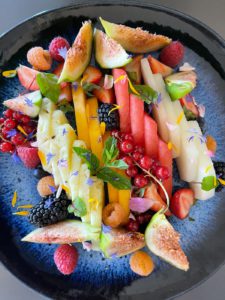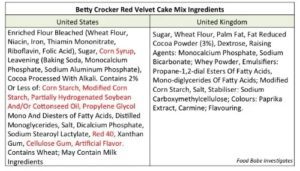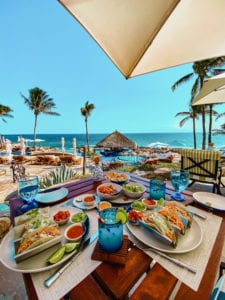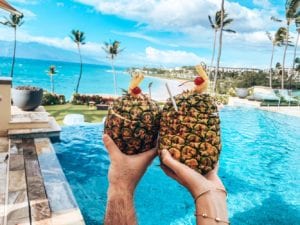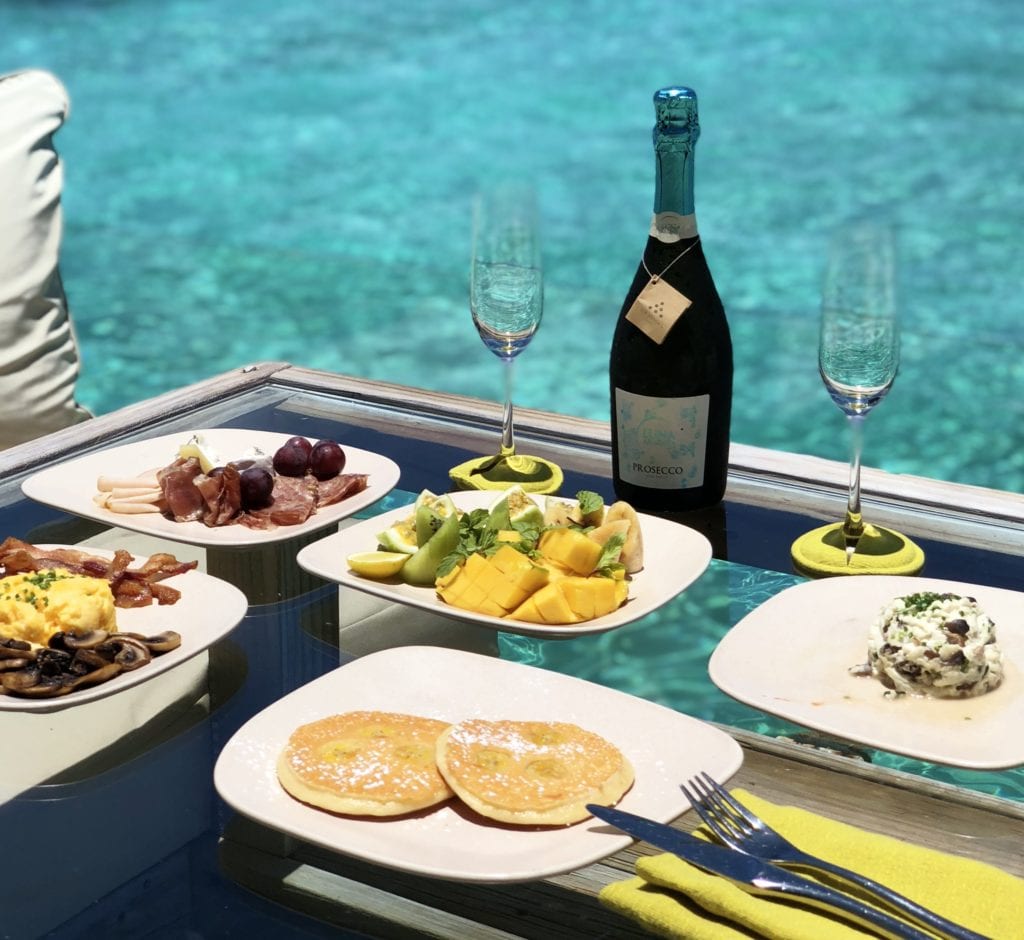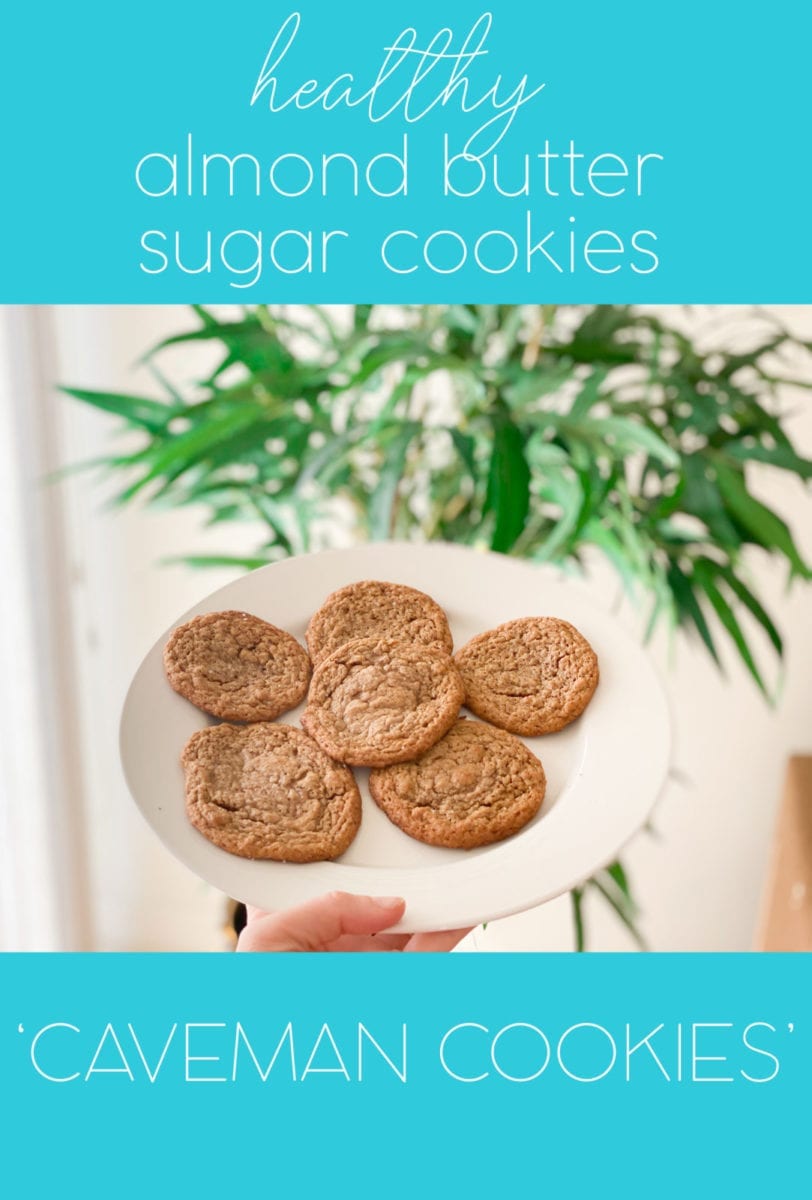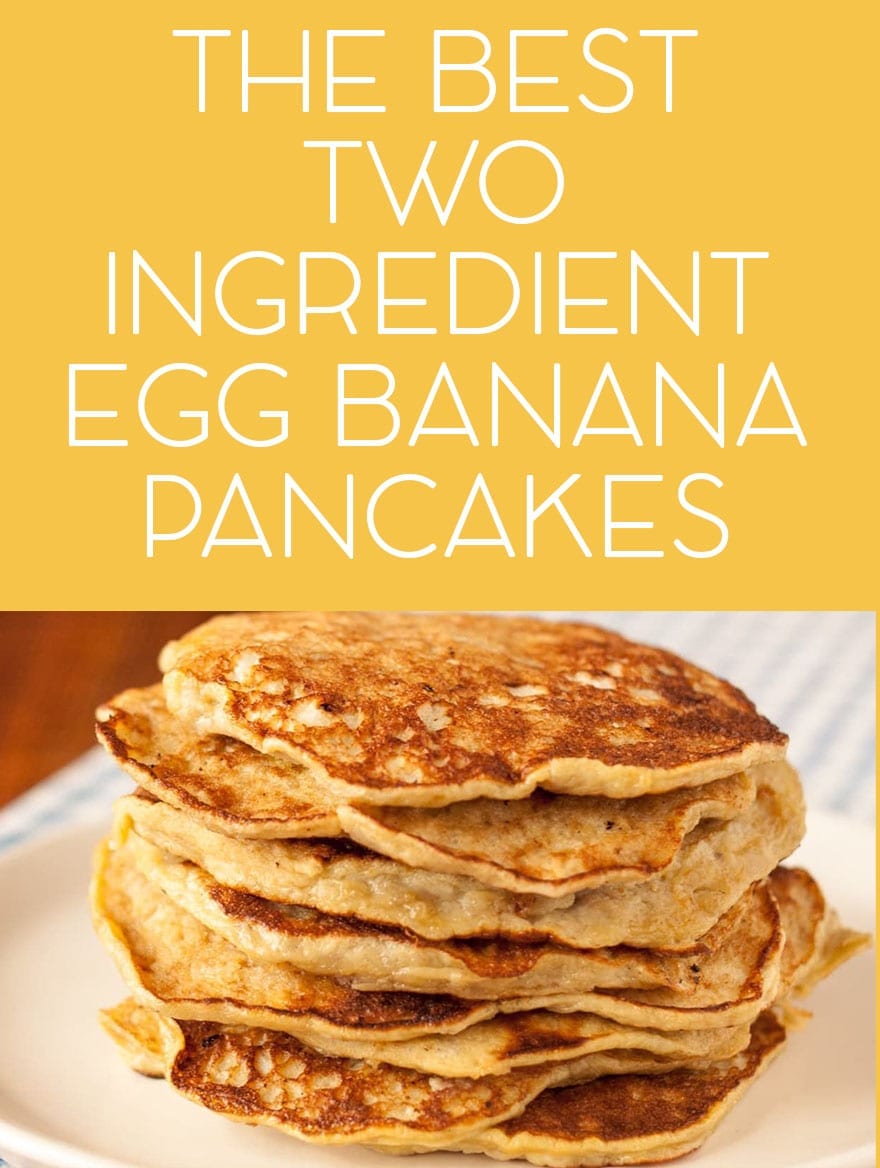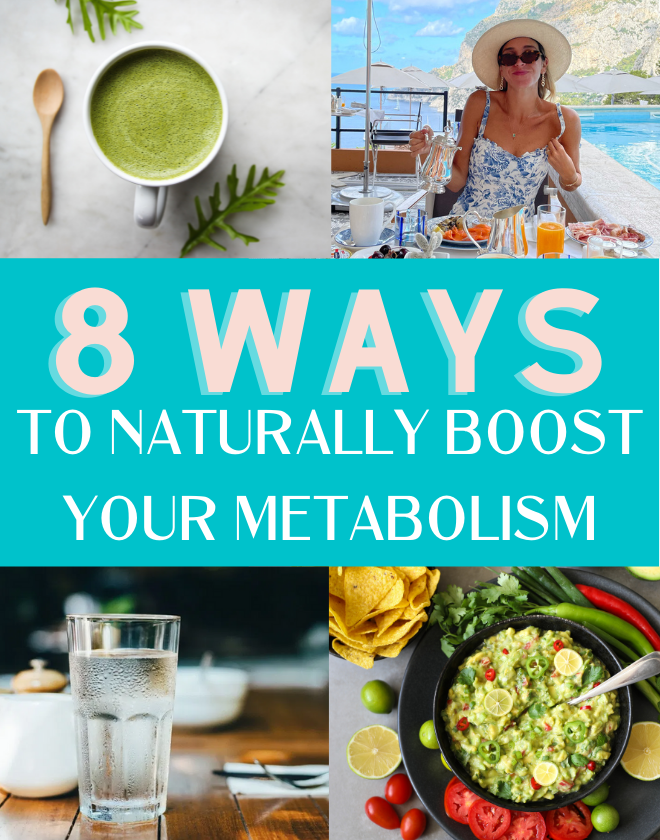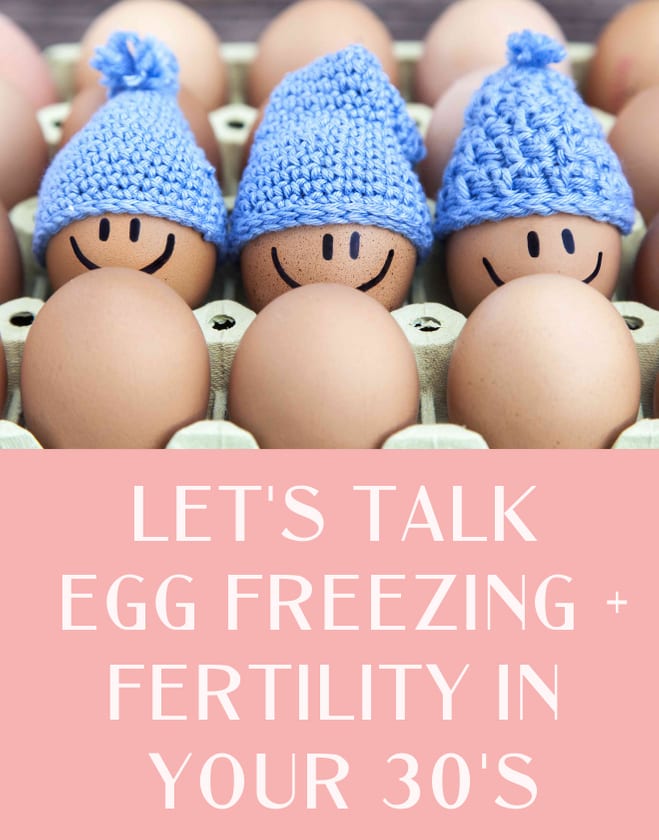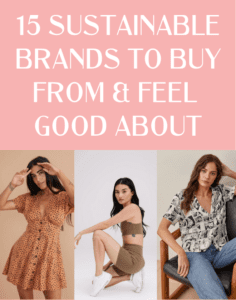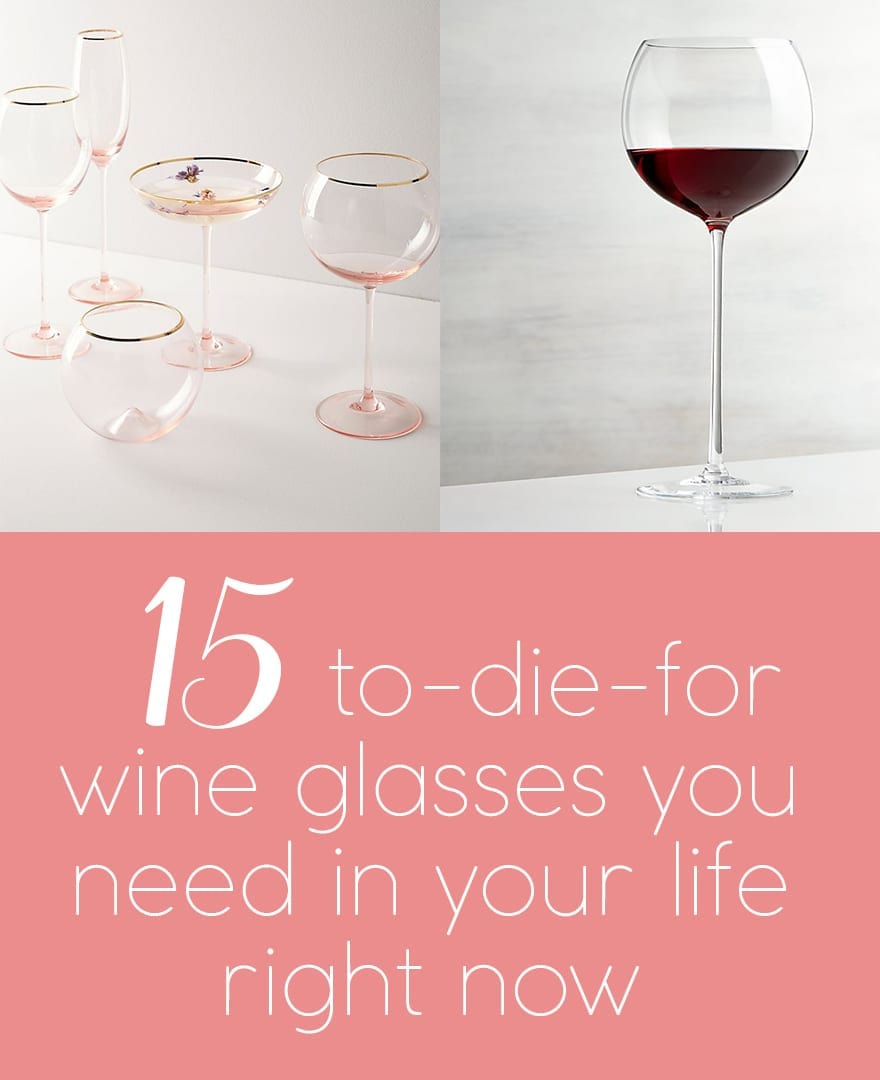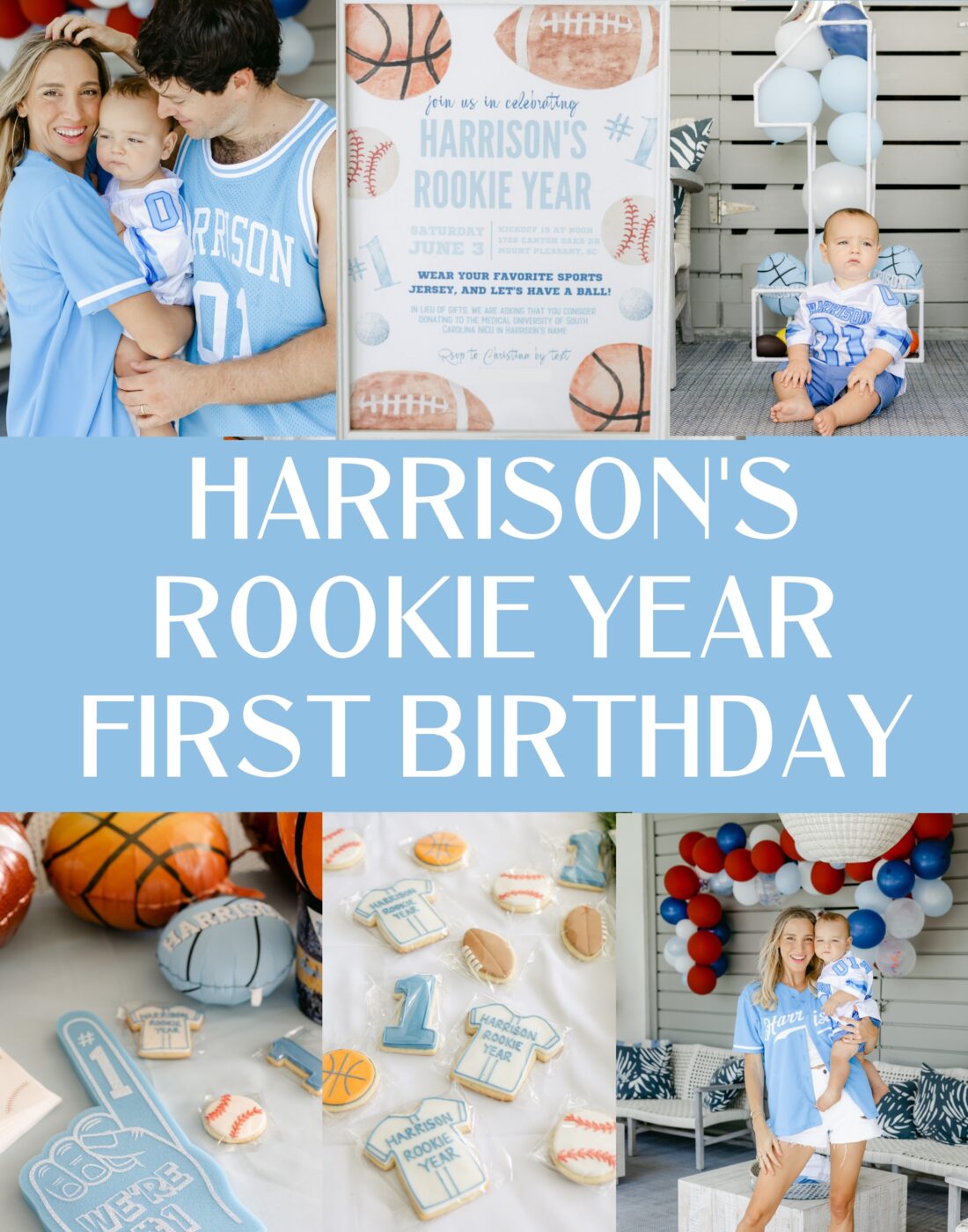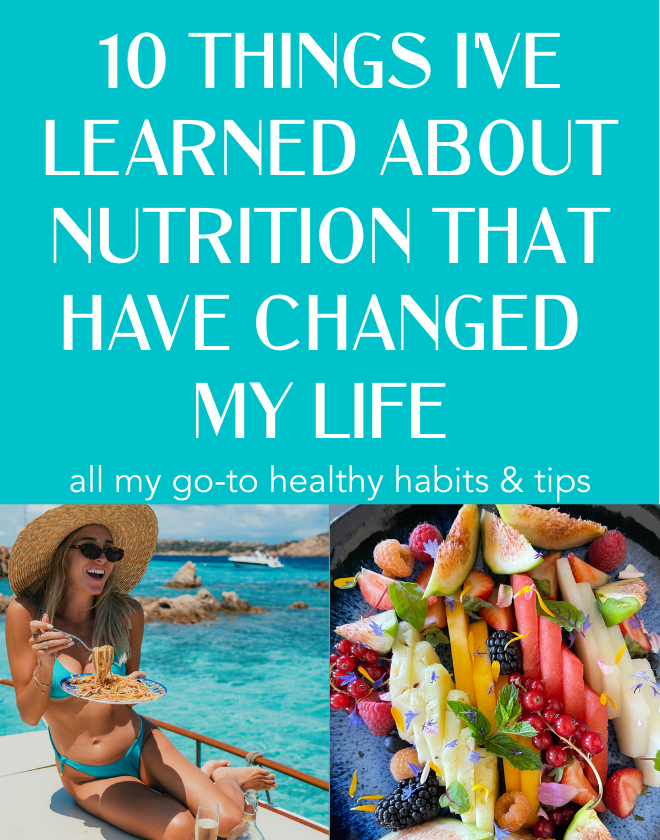
10 Things I’ve Learned About Nutrition that Have Changed My Life – My Go-to Healthy Habits & Tips
Let me preface this post by saying I am not a scientific nutrition expert, a fitness guru, a health freak who won’t touch anything “bad” for me, or someone who even likes talking about nutrition that much. Mainly because I feel like nutrition and health, and what works for YOU to feel your best, is so personal. All of our bodies are so different, and they like different things!
That being said, over the years, as I’ve grown this amazing community on the blog and on instagram, you guys have wanted to know more and more about my nutrition and fitness habits, both at home and while I’m traveling, that allow me to eat and drink as much as I do (which let’s be honest, you all know is a lot – I’m a huge foodie, and an even bigger wine-enthusiast), while still feeling healthy. I get so many messages asking about this, and I understand the curiosity – so I figured it’s time to start talking about it more on the blog.
While I’ve honestly always considered myself a pretty healthy person and have generally preferred healthier foods, I have definitely not always been as healthy, or as nutritionally informed, as I am now, and I went through a period of confusion over why I felt inflamed, (inflated, really), in my 20’s, constantly fluctuating with my body. Even though I was eating ‘healthy’, exercising, and doing all the things I thought I was ‘supposed’ to do, I didn’t feel great. And then I quit my job, moved abroad, and immediately all of my inflammation seemed to go away. I learned more about nutrition from living outside the US than I had ever before — healthy habits and knowledge that I’ve taken back to the US with me now, and that allow me to feel healthy no matter where I am in the world!
There are a few things I’ve learned and that I practice in my daily life that make a big difference in the way I’m able to eat, drink, feel great, and live my life in a healthy way, so, even though I am in NO way an expert, I want to share honestly what I’ve learned, and what works for me and my body, with you guys, in case it helps you!
10 things I learned about nutrition that changed my life
1. It is NOT easy to eat healthy, but it’s worth it.
Unfortunately, just because you think you’re doing the right things being ‘healthy’, doesn’t mean you are. Eating healthy takes a lot of work (and costs a lot, let’s be honest). Which is why most people don’t bother. In the USA, our eating habits are largely driven by convenience. And, unfortunately, the food we reach for is jam-packed with everything from preservatives, antibiotics, high-fructose corn syrup, refined grains, sugars, and additives left and right. Grocery shopping trying to avoid these ingredients can feel like navigating a mine-field. It’s exhausting. Add that onto the fact that most Americans have been taught that things like orange juice and granola bars are ~*healthy*~ (both are usually processed, with a TON of added sugar, unless it’s fresh orange juice with no added sugar, of course – which is hard to find in a grocery store), we buy ‘low fat’ and ignore all of the additives, we buy ‘multi-grain’ bread thinking it’s healthy when it’s processed and not fresh, and we use highly-processed canola and soybean oils in our cooking, because we think “‘vegetable oil’, that’s healthy, right?”.
These habits are engrained in us because food companies have been exploiting customers for decades, but the customer is getting smarter! The more informed you are, the more informed you can be when you’re grocery shopping and trust me, it makes a huge difference in your health.
2. You have to be very, very careful with the meat you eat.
Now, let’s get one thing straight, I’m a meat eater. I love meat. But have you noticed the trend toward veganism for health reasons? This is, in my opinion, not because meat is bad for us (we are carnivores, after all), but because OUR meat is bad for us. Large-scale meat production in the US for the most part takes place in CAFO’s – or confined animal feeding operations – and the meat we eat is coming from confined, STRESSED OUT, animals that are fed nothing but a few crops that aren’t good for them – these crops ( corn, usually), aren’t what the animal is meant to eat biologically (their digestive systems are built to eat grass), so corn inflates them severely, creating BIGGER meat, that is better for the meat companies to sell and make more money off of, but worse for our health.
These same crops (corn, etc) along with becoming animal feed, also become nasty biofuels and junk food ingredients (ever heard of high fructose corn syrup? It’s one of the worst things for us, YIKES).
So what can you do if you still want to eat meat? Please, please, buy only grass-fed red meat, milk, yogurt, butter and dairy products. Preferably from small farms, where they are allowed to GRAZE. Ideally not from the mass production farms that are (in my opinion) the root of our American diet issues. And, when buying seafood, always buy WILD caught, not farm-raised. (Here’s why).
3. “Good cheese comes from happy cows” is not just an advertising slogan. It’s real.
And it goes for all animals, and all animal food products.
There’s a reason for that famous California cheese slogan. I went to a cheese farm recently and talked to the master cheesemaker, who has been making some of the best cheese in California for decades, all about how, seriously, happy cows make better tasting, and more nutritious dairy products. And it makes total sense!!!! Think about how much more productive we are as humans when we’re happy, and in a good mental space. Now think about how we look, feel, and act when we get stressed out. It makes sense that our food sources need to be happy also, and not confined in a stressful environment, so that the food we eat is not only of the best quality, but also so that we aren’t quite literally absorbing their stresses into our own bodies.
Could this possibly be one of the reasons for our society’s rapid uptick in anxiety & stress over the past couple decades? For more really interesting info on this subject, I loved this podcast episode on the Truth About Our Red Meat, from the founder of Belcampo meats (a great place to go for high-quality, small-farm, ethically raised meat products).
4. It’s not just our meat & dairy that’s the issue. It’s our fruits and vegetables, too.
You may think you’re eating healthy by binge-eating vegetables, but you’re actually not necessarily. Which I know, is beyond frustrating. But knowledge is power!! Once again, the problems in my opinion seem to stem from large-scale production. Monoculture, heavy use of chemical fertilizers and pesticides all are causes for severe concern in our agriculture. So what can we do? Eat organic.
Eating organic reduces your exposure to chemicals. It also leads to more nutritious and vitamin-enriched fruits and vegetables ( studies have found that organic fruits and vegetables can contain more than 20% more antioxidants than their un-organic counterparts) and healthier meats (research from a 2016 study published in the British Journal of Nutrition, found that omega-3 fatty acid levels were 47% higher in organic meat).
5. There’s a reason why the rest of the world is healthier, and happier, than us in the USA. And it comes down to our food.
Here is a list of ingredients that are banned across the globe but still allowed for use here in the American food supply. Could these banned ingredients be contributing to the higher mortality and disease rates here in the U.S.?
Food is medicine, and put simply, if our food is sick (filled with GMO’s, chemicals, artificial ingredients, additives, carcinogens), and we have to be informed customers and actively seek out the foods with fewer (and WHOLE) ingredients.
So why did I say other nations are healthier, and happier? What it boils down to is that what we eat matters for every aspect of our health, but especially our mental health. Several recent research analyses looking at multiple studies support that there is a link between what one eats and our risk of depression, specifically.
OK I’ll stop here to break for a second because I feel like this is A LOT to take in at once. By now, you’re probably feeling pretty down about the state of our agriculture and food, and maybe even helpless, which, I get completely. Because it’s hard! And, sometimes, it’s easier to just push all the world’s problems under the rug and not worry about it, but, when it’s affecting our own health, it’s so important to be informed! So here’s a pretty picture of the Maldives to distract you for a sec.
OK now let’s keep going.
6. There is a big difference in the oils you choose to cook with
You probably know by now the benefits of extra-virgin olive oil. However, what you may not realize is how many “olive oils” are out there masquerading as extra virgin olive oils. Extra-virgin olive oil is made from pure, cold-pressed olives, whereas regular olive oil is a blend, including both cold-pressed and processed oils. If an oil is not “cold-pressed” or “extra-virgin,” the oil is considered refined. This process includes caustic refining, bleaching, and degumming – all which involves chemicals that are damaging to our bodies.
EVOO is generally the move for a good cooking oil. However, some people argue that because olive oil has a lower smoke point than other oils, when you heat olive oil too high, the beneficial compounds in oil start to degrade, meaning you could potentially lose nutritional benefits, thus it’s better to use avocado oil, or another oil with a high smoking point instead. However, recent research suggests that olive oil is still very stable at high heats like frying. So, jury’s still out – I don’t worry about this as much as I do making sure my olive oil is high quality and extra virgin. I do personally like cooking with avocado oil and coconut oil too, though!
Definitely stay far away from the canola oil or any vegetable oil. Canola oil is genetically modified, highly processed and refined, all which contribute to major health problems in the body. All vegetable oils are clear, tasteless, highly refined and processed oils – corn, soybean, canola, safflower and sunflower oils. The simple reason as to why these are so unhealthy for us is that these oils are not fit for human consumption. Before industrial processing, humans simply consumed naturally-occurring fats in the form of items such as butter, ghee, tallow, lard, coconut oil or olive oil.
7. Sometimes, healthier versions taste just as good as, or even better than, the ‘real’ thing.
While vegan mayo might not be for everyone, I’ve found healthy substitutes that I like even more than their ‘real’ counterpart. Like these egg-and-banana pancakes that are even better to me than flour-packed ‘real’ pancakes (and I feel much better after eating them!) or this healthier ranch dressing recipe. I also LOVE hearts of palm pasta, especially using the hearts of palm lasagna in my lasagna recipes! I also almost always use cauliflower rice in place of rice, like in this stir fried rice recipe! I’d recommend keeping an open mind, learning which substitutes you like, and which you don’t! And then start making little changes in your everyday diet to incorporate healthier options.
8. Love the foods you love! And realize that often foods that people think aren’t “healthy”, actually can be!
For example, I LOVE Mexican food. But people for whatever reason always associate Mexican food with like a Chipotle-sized chimichanga fried burrito and a ton of queso. Maybe that’s your thing! But I prefer to make ground turkey tacos at home, or these to die for homemade short rib tacos, I personally usually skip the cheese (or just do a little bit of organic cheese), and use fresh ingredients, with a lot of avocado, tomato, and green onions. If I’m doing taco shells, I’ll use corn tortillas fried in avocado oil (see above), and these Siete brand grain-free tortillas that I love. I’ll add a side of black beans (which are one of the best foods for you – they contain a ton of vitamins, as well as polyphenols which function as antioxidants), and some spicy salsa (but check your salsa ingredients – we’re going for fresh, no additives!).
If I’m out at a Mexican restaurant, I look for something like fajitas or fresh tacos, not fried, with high quality meat, and lots of fresh salsas and guacamole! I’ll get fish tacos grilled, and I’ll usually skip mayo or aiolis (personal preference), but sometimes I’ll just ask for a little!
9. Fitness is important, but what we eat is most important
Keeping our bodies moving and active is so important to our health. But have you heard the saying “abs are made in the kitchen”? If you’re trying to reach your fitness goals, but aren’t seeing a ton of results, it’s probably because of what you’re eating. There’s no doubt both diet and exercise are important to our health, but all the exercise in the world won’t help you lose weight if your nutrition is out of whack.
Now, that doesn’t mean eat less, it means eat smarter. Which hopefully after reading this post you are well-equipped to do!
10. Guilt has no place in a healthy diet
This is arguably the most important point I want to make with this post. Diet culture is the WORST. I don’t believe in diets. Eating healthy is a lifestyle choice, not a diet. Research has shown over and over that food restriction has never worked for anyone’s body sustainably. While the temporary effects of restricting food may seem enticing, dieting doesn’t help you better your health, and it can actually be toxic.
Food is meant to be enjoyed and eating is meant to be a loving, nourishing experience! Food is love. It’s how we show our love to others (if you, like me,love to cook) and it’s how we show our loves to ourselves. Each and every bite should nourish your body, mind and soul. But if you, like many people, have created society-driven unhealthy thought patterns when it comes to food, you may feel guilty, or stressed when it comes to eating.
It’s all about changing those thought patterns. You aren’t “bad” because you ate that delicious piece of cake or drank that sugary mai tai. Change the thought process to how amazing it is that you’re practicing self-care and indulging yourself with something amazing and delicious that your body loves! You’re not “bad”. In fact, you’re practicing a HEALTHY diet by indulging yourself. Did you know that some research has shown that your metabolism actually may go up when you ‘cheat’ on an otherwise nutritious diet. Other studies have shown that indulging temporarily (say, the holidays) doesn’t actually have any significant impact on weight or fat mass. Maybe this is because your metabolism is being kept in check by your indulgences? I personally think of it like exercise. I’m sure you’ve heard that mixing up your workout routine is better for your body than doing the same workout every day. This is because when you do the same workout every day, you burn way more calories the first workout than you do the second, and even fewer the third, and so on. The law of diminishing returns. Your body is learning how to become more efficient at that exercise, and your muscles are building up, so it’s getting easier for you, and easier on your body. But that’s not great if you’re trying to push your body more and burn more calories. I feel like it’s the same with your metabolism. This is not a scientific conclusion at all, but just my own experience! (but they should seriously study it if they haven’t already!).
The healthy habits that I do personally that I feel make the biggest difference!
I don’t eat processed food
I personally don’t eat processed foods (anything in a box or a bag, really!!). Of course there are exceptions to this, but on the daily, I am only eating whole, fresh foods. If I’m at a party and there are crackers or cookies or cake that are from a box or a bag, I’ll still have it, and won’t feel guilty about it for a second! Because for the most part, when I can control what I’m eating, I’m not eating anything processed, which balances out the indulgences.
Eat the freaking bread, but make it fresh
This goes along with the above. Bread has gotten a bad rap in my opinion. While of course there are celiacs and gluten-intolerant people out there who bread may not be good for, I am not one of them. I personally love bread, I’m a carb-o-holic. But I always eat fresh bread (ideally that was made that day!). I never eat wonderbread or a bag of processed bread from the grocery store. And I look for breads made with unenriched flours and whole wheat flours, as well as sourdough (which is not only my favorite, being from San Francisco, but is the healthiest bread option! The lower phytate levels in sourdough mean it is more digestible and nutritious, and the prebiotics also help to keep your gut bacteria happy, and it may be less likely to spike blood sugar levels).
By the way, did you know you can get San Francisco’s famous Tartine sourdough bread (the best in the city) delivered to you anywhere in the USA?! Yes please.
I love to bake, but I use healthier alternatives when I can
I love to bake, especially for friends and dinner parties, and, let’s be honest, any night of the week. Baking is one of my favorite things to do, and it de-stresses me. I also just love home-made cookies, brownies, cakes, etc. so much more than anything from a store. Part of this is because I know the ingredients going into them, and I can choose to use healthier ingredients and make healthier alternatives to the foods I love that work!! For example, we love to bake these almond butter cookies, which are gluten-free, refined-sugar free, and use oat flour in place of refined flour. I almost always will use coconut palm sugar instead of refined sugar in any recipe (coconut palm sugar is unrefined, and has a much lower glycemic index than sugar (the glycemic index measures and ranks various foods by how much they cause blood sugar levels to rise), which makes it easier for our bodies to digest and overall healthier!
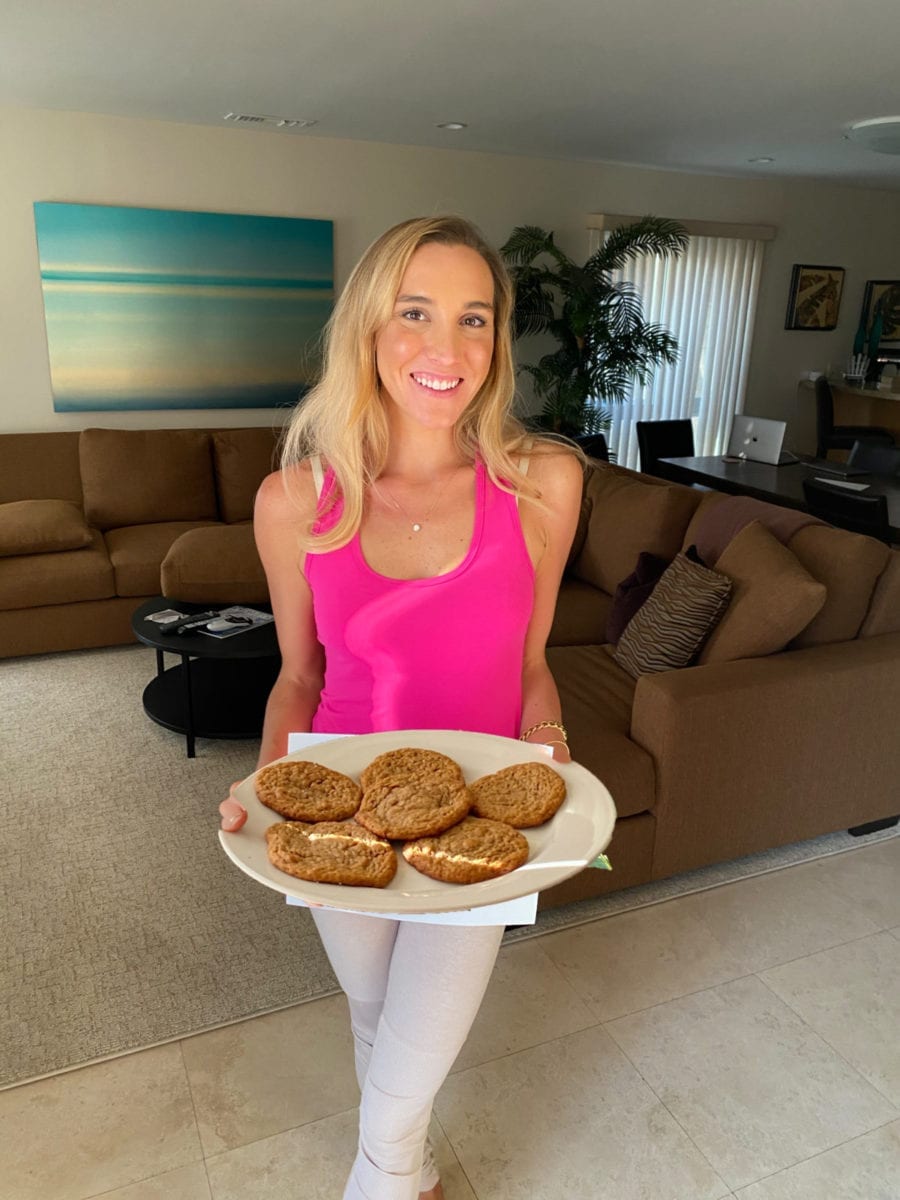
I drink celery juice nearly every day
If we’re at home, I’ll make homemade celery juice (or another fresh vegetable or fruit juice) every day. If we’re traveling, we’ll find a local juicery that has sugar-free fresh juice options. Starting the day with fresh juice has been a constant habit of Kenny and mine for at least a couple of years now. We don’t feel ourselves, or nearly as healthy or energized, without it!!!! But, one thing to watch out for is how many places claim to have a ‘green juice’ but the first ingredient is pineapple juice or apple juice. These are sugary juices that are added to an otherwise fresh, clean, vegetable juice because they make for cheap fillers for the store!!! I look for green juices that are purely green, or fruit juices that don’t lead with either pineapple or apple.
There are all kinds of claimed benefits to celery juice every day. Because most of its plant fiber has been removed, celery juice packs more nutrients per serving than celery stalks. So if you’re thinking ‘I can just eat celery’, that’s great too, but you’d have to eat about an entire two bunches of celery to get the same impact. Celery’s benefits are that it is PACKED with vitamins: Vitamin A, Vitamin C, Vitamin K, Calcium, Magnesium, Zinc, Copper, Folate, Biotin, other B vitamins, and antioxidants
It’s said to reduce inflammation, which is the main reason many love it so much to start their day. It’s also even said to prevent cancer, since antioxidants may help protect your cells against molecules called free radicals, which play a role in heart disease, cancer, and the aging process.
If you want to juice at home, this is the juicer I have and am obsessed with. We stock up on our veggies and fruits at Costco so we have enough to juice with! One pack of organic celery makes 2 glasses of celery juice, FYI!
I eat organic when I can
For all the reasons I listed above! I feel better buying organic as much as I can. If you’re picking and choosing what to buy organic, a good rule of thumb I’ve heard is if it has a skin you eat, always buy it organic, versus something like a banana with a thicker skin, which you don’t necessarily need to be organic as much.
I try to buy wild-caught seafood & grass-fed meat
We got into WHY I do this above, but I definitely make this a practice every day. I found this great site where you can get pre-cut filets of wild-caught King Salmon shipped to you directly from Alaska and they’re SO good. For grass-fed meat, you can find this pretty easily at your local Whole Foods or specialty grocer!
I move my body, but I by no means hold myself to it every day!
I try to stay active and keep my body moving. Sometimes, that’s starting the day off with a resort gym workout or a yoga class (or an app workout – I have been loving pilates on Melissa Wood Health), and other days, it’s just making sure I’m walking everywhere, and other days, it’s doing fun things like paddle-boarding, kayaking, or swimming in the ocean if I’m on vacation!
I treat myself, but I know balance
“Your body isn’t a temple, it’s an amusement park, enjoy the ride.” – Anthony Bourdain
And when it comes to traveling? Give yourself a much-needed break! If you’re following a good, nutritious, whole diet at home, you should be able to treat yourself on vacation and not feel guilty about it for a second. Plus, travel is all about the food and drinks. You don’t want to miss out on wine & cheese in France, nasi goreng in Bali, Argentinean steak in Buenos Aires, pan con tomate in Barcelona, Vietnamese iced coffee or Brazilian capirinhas. The key to staying healthy on vacation is not cutting food out, it’s just having a healthy diet going into the vacation, and adding some exercise to the mix while you’re there!
Some days you may just eat 8 Belgian waffles at your all-inclusive breakfast, followed by a few mimosas. AND THAT’S OKAY. Just make sure you rent a bike or go on a coastal walk for a couple hours to balance it all out. If you splurge on fruity cocktails and all kinds of booze one night, don’t be afraid opt for water (or just a glass of wine) the next. Finding the balance that works for you is so crucial to sustaining health, always, especially when you’re traveling.
I take collagen every day
I add collagen to my coffee or smoothie every day. This is the one that I use. If I’m traveling, I like these collagen packets (you can shop them on Amazon here), since they’re super easy to travel with since they come in one-time-use packets, so I always have them in my purse. If you don’t take collagen protein or don’t know what it is – collagen protein is a flavorless protein powder that stimulates the body to produce its own collagen (which declines with age), it’s good for hair, skin, nails and general body health. I love it.
Read more: My everyday bulletproof coffee recipe
I never weigh myself
I don’t weigh myself. I don’t think it’s healthy to weigh yourself often. I also don’t think being healthy means weighing less, at all. We all fluctuate (some people 3-5 lbs even throughout a single day!), and we all have a different ideal weight that our bodies (not our egos!) are most happy at.
What matters to me most is how I FEEL, and of course, how I look to myself. While I don’t weigh myself, I do look in the mirror at my body, so I can tell if I’m slacking a little bit on my nutrition or exercise, or if I need to tone it up a bit before a Watercolors Swim shoot. I just don’t think a number on a scale is a good measurement of how good I feel or how I want to look.
What healthy habits or tips do you guys have that I should try or that work for you? Leave them in the comments!
Check out these other related blog posts
8 ways to naturally boost your metabolism
Egg freezing in your 30’s – what you need to know




